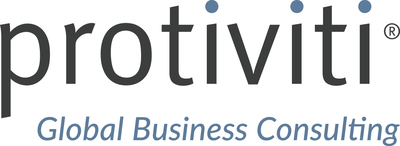More Than 68% Percent of Organizations Expect to Have Integrated AI Agents By 2026, Protiviti Study Reveals
Werte in diesem Artikel
MENLO PARK, Calif., Sept. 30, 2025 /PRNewswire/ -- A global study of multinational organizations' integration of agentic AI found that more than 68% of organizations will have integrated autonomous or semi-autonomous AI agents into their core operations by 2026. This includes nearly one in four (23%) respondents who reported in August 2025 that they were within six months from integrating AI agents that can operate semi-autonomously or with defined guardrails under human supervision.
That is one of the key findings in the latest report from global consulting firm Protiviti's AI Pulse Survey series, From Automation to Autonomy: The Capabilities and Complexities of AI Agents.
Though most respondents prefer semi-autonomous agents, almost 20% are using or will use fully autonomous agents within the next year, outstripping those with longer-term plans by a significant margin.
Protiviti's survey also shows that an additional 27% of organizations plan to integrate agentic and multi-agent AI systems into their operations within the next six months. These early deployments are typically restricted to bounded domains, where AI agents are granted limited autonomy under human oversight, a model that allows organizations to capture value while mitigating potential risk.
"Agentic AI represents the next chapter of corporate transformation," said Tom Andreesen, Protiviti AI Leader. "Successful organizations are starting with semi-autonomous models that build trust and confidence, before scaling toward greater autonomy as their capabilities mature. The future of AI in business will be defined by this progression from controlled pilots to trusted, organization-wide decision-making."
Maturity Level Matters for Autonomy
The report shows a strong near-term focus on integrating agentic AI, with more than half of organizations actively planning to implement agentic AI in the next year, and only about 5% targeting a 3-to-5-year horizon. While most organizations prioritize agentic capabilities in the near term, the organizations at more advanced stages of AI adoption, specifically those in the optimization and transformation phases (Stages 4-5), are leading the way in integration.
Other key findings include:
- 77% of the most mature organizations are already using or expect to use AI agents for repetitive tasks. This reflects a push from high-maturity organizations to turn agents into competitive assets and scale AI for performance and strategic impact.
- Organizations in the early stages of their AI journey (Stages 1–2) are still in exploratory phases, with 33% targeting integration within 12 months and 28% within 1–2 years. As organizations begin to engage more actively, 45% of respondents cite vendor partnerships and open-source ecosystem participation as common strategies to build foundational capabilities in agentic AI.
Executive Leadership as Agents of Change
A notable perception gap exists between executives and employees at lower levels. Among board and C-suite executives, 37% expect to integrate semi-autonomous agents, while 31% foresee fully autonomous agents. Mid-level and operational staff remain more cautious, with only 17% expecting full autonomy, possibly due to their closer proximity to operational risks and implementation challenges.
Additionally, as organizations build and deploy AI agents, the perceived benefits and priorities vary by industry, operational needs and leadership roles.
- Enhancing real-time insights: Healthcare, tech, and retail sectors are prioritizing real-time data processing and insight generation through agentic AI.
- Automating decision-making processes: Meanwhile, financial services organizations are focused on automating complex decision-making tasks, leveraging their existing real-time data infrastructure. Government and manufacturing & distribution (M&D) sectors show slightly more conservative outlooks, likely due to regulatory constraints and risk-averse operational environments.
"Senior leaders see agentic AI as a catalyst for scale, speed, and competitive advantage," said Patrick Anderson, Managing Director, AI. "The opportunity is clear — the real work lies in closing the readiness gap to turn ambition into capability. Organizations that invest in the right governance frameworks, internal skill sets, and have strategic clarity will be the ones to scale successfully."
Methodology
For its survey on Agentic AI, Protiviti garnered about 900 responses globally from C-suite executives, board members, vice presidents, and director- and manager-level professionals in diverse industries including technology. The respondents' primary job functions included IT, operations, finance, and compliance, executive and board, among others.
Protiviti launched its AI Pulse Survey series in 2025 to gain insights into how enterprises across various industries currently use artificial intelligence and where they see growth opportunities and challenges. Each pulse survey is designed to cover a specific theme, such as AI readiness and ROI, data challenges, agentic AI, and operational and governance risks.
About Protiviti
Protiviti (www.protiviti.com) is a global consulting firm that delivers deep expertise, objective insights, a tailored approach and unparalleled collaboration to help leaders confidently face the future. Protiviti and its independent and locally owned member firms provide clients with consulting and managed solutions in finance, technology, operations, data, digital, legal, HR, risk and internal audit through a network of more than 90 offices in over 25 countries.
Named to the Fortune 100 Best Companies to Work For® list for the 11th consecutive year, Protiviti Inc. has served more than 80 percent of Fortune 100 and nearly 80 percent of Fortune 500 companies. The firm also works with government agencies and smaller, growing companies, including those looking to go public. Protiviti Inc. is a wholly owned subsidiary of Robert Half (NYSE: RHI).
![]() View original content to download multimedia:https://www.prnewswire.com/news-releases/more-than-68-percent-of-organizations-expect-to-have-integrated-ai-agents-by-2026-protiviti-study-reveals-302570451.html
View original content to download multimedia:https://www.prnewswire.com/news-releases/more-than-68-percent-of-organizations-expect-to-have-integrated-ai-agents-by-2026-protiviti-study-reveals-302570451.html
SOURCE Protiviti
Übrigens: Robert Half und andere US-Aktien sind bei finanzen.net ZERO sogar bis 23 Uhr handelbar (ohne Ordergebühren, zzgl. Spreads). Jetzt kostenlos Depot eröffnen und Neukunden-Bonus sichern!
Ausgewählte Hebelprodukte auf Robert Half
Mit Knock-outs können spekulative Anleger überproportional an Kursbewegungen partizipieren. Wählen Sie einfach den gewünschten Hebel und wir zeigen Ihnen passende Open-End Produkte auf Robert Half
Der Hebel muss zwischen 2 und 20 liegen
| Name | Hebel | KO | Emittent |
|---|
| Name | Hebel | KO | Emittent |
|---|
Nachrichten zu Robert Half
Analysen zu Robert Half
| Datum | Rating | Analyst | |
|---|---|---|---|
| 19.11.2018 | Robert Half Underweight | Barclays Capital | |
| 03.04.2018 | Robert Half Overweight | Barclays Capital | |
| 29.12.2017 | Robert Half Market Perform | BMO Capital Markets | |
| 28.12.2017 | Robert Half Buy | Deutsche Bank AG | |
| 14.07.2017 | Robert Half Market Perform | BMO Capital Markets |
| Datum | Rating | Analyst | |
|---|---|---|---|
| 03.04.2018 | Robert Half Overweight | Barclays Capital | |
| 29.12.2017 | Robert Half Market Perform | BMO Capital Markets | |
| 28.12.2017 | Robert Half Buy | Deutsche Bank AG | |
| 14.07.2017 | Robert Half Market Perform | BMO Capital Markets | |
| 22.10.2015 | Robert Half International Outperform | RBC Capital Markets |
| Datum | Rating | Analyst | |
|---|---|---|---|
| 10.01.2017 | Robert Half International Equal Weight | Barclays Capital | |
| 28.11.2016 | Robert Half International Sector Perform | RBC Capital Markets | |
| 28.04.2015 | Robert Half International Equal Weight | Barclays Capital | |
| 08.11.2005 | Update Robert Half International Inc.: Market Perf | Piper Jaffray |
| Datum | Rating | Analyst | |
|---|---|---|---|
| 19.11.2018 | Robert Half Underweight | Barclays Capital | |
| 23.10.2015 | Robert Half International Underweight | Barclays Capital | |
| 28.07.2015 | Robert Half International Underweight | Barclays Capital |
Um die Übersicht zu verbessern, haben Sie die Möglichkeit, die Analysen für Robert Half nach folgenden Kriterien zu filtern.
Alle: Alle Empfehlungen


